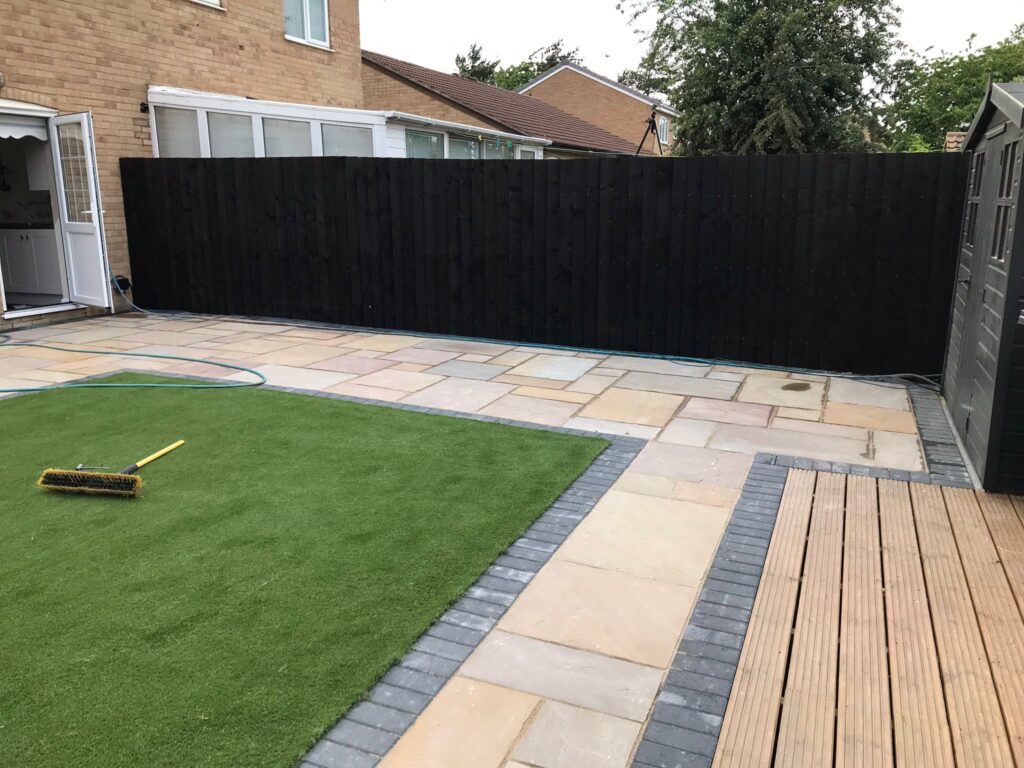Are You Over-Cleaning Your Block Paving? What You Should Know
Block paving is a popular choice for driveways and patios in Earls Barton, Northamptonshire, thanks to its durability, aesthetic appeal, and easy maintenance. However, while it’s relatively easy to keep your block paving looking good, many homeowners often over-clean their driveways, which can lead to damage and long-term problems. Understanding the correct approach to cleaning block paving is essential to preserving its appearance and functionality.
At Earls Barton Driveways & Patios, we specialise in the installation and maintenance of block paving surfaces, and in this blog post, we’ll explain why over-cleaning can be detrimental, how to clean your block paving properly, and what you should do to maintain it for years to come.
The Risks of Over-Cleaning Block Paving
Cleaning your block paving too frequently or using the wrong methods can lead to several issues. Here’s why:
1. Pressure Washing Can Cause Damage
- Dislodging joints: High-pressure washing, which many people use to clean block paving, can cause the joints between the blocks to become dislodged. Over time, this weakens the structure of the surface, leading to potential instability.
- Surface damage: Pressure washers can erode the surface of the blocks, especially if the nozzle is too close to the paving. This can cause the finish to wear off, leading to a dull and worn appearance.
- Water ingress: Overuse of pressure washing can push water into the gaps between the blocks, leading to water pooling beneath the surface. This can cause shifting and settling of the blocks over time.
2. Removal of Protective Sealer
Many block paving surfaces are treated with a sealer to protect the material from dirt, stains, and weathering. Over-cleaning can strip away this protective layer, leaving the blocks more vulnerable to stains and wear. Without the sealer, your block paving will be more prone to damage from oil, rust, or algae growth.
3. Increased Weeds and Moss Growth
While cleaning your block paving removes visible dirt and debris, frequent washing can encourage weeds and moss to grow in the gaps between the blocks. The moisture from pressure washing creates an ideal environment for these unwanted growths, which can quickly spread if not controlled.
4. Deterioration of Jointing Sand
The jointing sand between the blocks helps keep them in place. However, over-cleaning, particularly with water and pressure washing, can cause the sand to wash away. If the sand is not replenished, the blocks can start to shift, causing uneven surfaces and potential tripping hazards.
How to Clean Your Block Paving Properly
To avoid the risks of over-cleaning, it’s important to adopt the right cleaning methods for your block paving. Here are the best practices to follow:
1. Use a Soft-Bristled Brush
Instead of using a pressure washer, opt for a soft-bristled brush to sweep away dirt, leaves, and debris from your block paving. This gentler method prevents damage to the joints and surface while still keeping your driveway or patio looking neat.
2. Use Mild Cleaning Solutions
If you need to remove stains or dirt, avoid harsh chemicals or strong detergents, as they can damage the surface and strip away the sealer. Use mild soapy water or a specifically designed block paving cleaner to remove tough stains without causing harm.
3. Apply Weed Killer When Necessary
Instead of using pressure washing to remove weeds, apply a weed killer solution to the affected areas. This will kill the weeds without disturbing the joints or surface of the block paving. It’s also important to regularly check for new growth and treat it promptly to avoid a build-up of weeds.
4. Reseal Your Block Paving
To protect your block paving from the elements and maintain its appearance, it’s important to reseal the surface every couple of years. This helps preserve the colour, reduces the growth of weeds, and prevents stains from setting in. Make sure to apply a high-quality sealer to protect your investment.
5. Avoid Using High-Pressure Washers
If you do need to use a pressure washer, ensure that the nozzle is kept at a safe distance from the surface (at least 18 inches away) to avoid dislodging the joints or damaging the blocks. Use a low-pressure setting and never use hot water, as this can cause the blocks to expand and crack.
How Often Should You Clean Your Block Paving?
Block paving doesn’t require frequent cleaning. In fact, over-cleaning can do more harm than good. For general maintenance, cleaning your block paving once or twice a year is usually sufficient. However, you may need to clean it more often if you notice significant staining, debris accumulation, or weed growth.
- Spring cleaning: A thorough cleaning once a year, preferably in spring, can help remove any debris, moss, or stains that may have accumulated over the winter months.
- Spot cleaning: Regular spot cleaning using a brush and mild detergent is ideal for keeping the surface looking fresh without damaging it.
Conclusion
While it’s important to maintain your block paving to keep it looking its best, over-cleaning can cause long-term damage. By avoiding high-pressure washing, using the right cleaning products, and regularly maintaining the joints and sealant, you can ensure that your block paving remains in excellent condition for many years.
At Earls Barton Driveways & Patios, we offer professional block paving installation and maintenance services in Earls Barton, Northamptonshire. If you’re unsure how to care for your block paving or need expert advice, don’t hesitate to contact us. Our team is here to help you protect your driveway and patio with the best care solutions available.
If you’re looking for professional cleaning services or need to replace worn-out block paving, get in touch with us today for a consultation. Let us help you maintain your driveway’s beauty and longevity.
Call us on: 01604 279 793
Click here to find out more about Earls Barton Driveways & Patios
Click here to complete our contact form and see how we can help with your driveways.

